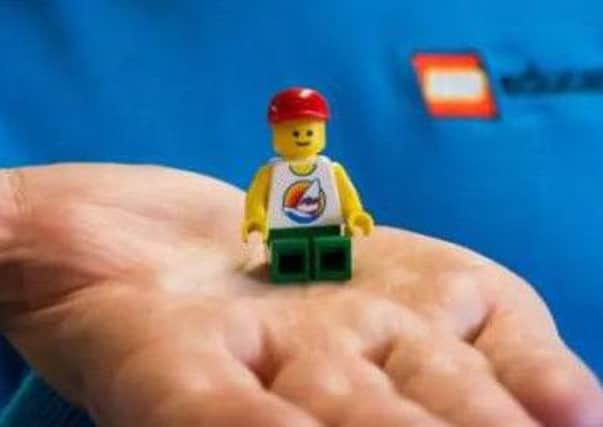Building blocks to help get inside the special world of children with autism


Experts believe the building blocks popular with generations of youngsters can now help them “get inside the world” of children with the condition, and help to diagnose deafness and other conditions.
The study is being put in place at a new child mental health centre launched by the University of York and Hull York Medical School.
Advertisement
Hide AdAdvertisement
Hide AdLego-based therapies were developed in America but are now used around the world.
It is estimated that about one in every 100 people in the UK has autism. More boys are diagnosed with the condition than girls.
The centre’s co-director, Dr Lina Gega, said: “In order to find successful interventions to some of the challenges children face, we have to first understand their world.
“We want to help shape child-friendly treatments for mental health that have been influenced by children themselves.”
Advertisement
Hide AdAdvertisement
Hide AdThe Lego therapy lets children on the autism spectrum enjoy socialising as part of a small group, interacting with the toy.
Dr Gega said: “One of our new studies on childhood phobias, for example, demonstrates how stressful it can be for a child to receive multiple NHS treatment sessions. Up to 10 per cent of children suffer from severe phobias that can have a life-long debilitating impact if not treated early on.
“NHS resources are limited for the repeat visits that cognitive behavioural therapies require, however, and so Centre researchers will investigate new treatment methods that can be delivered in one session, to reduce the stress on the child and NHS resources.”
Professor Barry Wright, director of the new centre, said: “Traditionally children and adolescent mental health research is based around interventions that have been used in adult populations, but we aim to move away from this model with the launch of the new centre.
Advertisement
Hide AdAdvertisement
Hide Ad“We have strong involvement from young people in designing and running our research, and children and families are right at the centre of our thinking as we plan further research.”
The Lego study is being funded by the National Institute for Health Research.
Another study at the centre will research the diagnosis of autism among deaf children, who are more commonly diagnosed with the condition than those who can hear, even though traditional assessment methods are designed for hearing children.